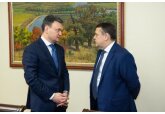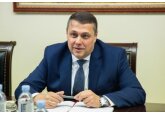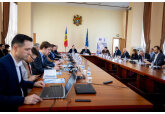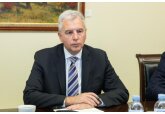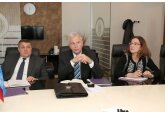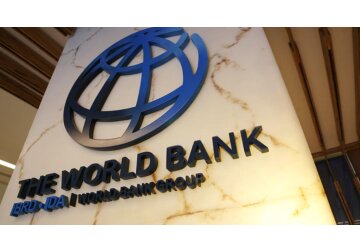
The World Bank has approved a new Partnership Framework with Moldova for 2023-2027.
The document, approved by the Board of Directors of the World Bank Group, stipulates that Moldova will promote a green, sustainable, competitive and inclusive development program with WB support. Overall, the new WB Partnership Framework with Moldova aims to support Moldova's sustainable recovery from the effects of the COVID-19 pandemic, the energy crisis and the influx of refugees from Ukraine, with an emphasis on reforms that support job creation and a greener, more inclusive economy. WB experts note that the volatile regional and global environment requires reforms and institutional changes that will make Moldova's economy more resilient to shocks. Under the new Partnership Framework, the World Bank Group will support reforms in three areas: expanding formal employment opportunities; improving human capital development; and increasing resilience to climate change and crises. The World Bank Country Director for Moldova, Inguna Dobraja, said that Moldova should seize the opportunity to shift to a more sustainable growth trajectory that leads to shared prosperity and a more inclusive economy, especially now that it is approaching the desired European Union integration. The World Bank Group stands ready to support Moldova in transforming its economy and improving living standards, she said. The new WB Partnership Framework with Moldova for 2023-2027 provides funding and analytical and advisory activities to implement reform programs aimed at restoring economic growth and job creation. In the next 5 years, Moldova will have access to new World Bank loans, both for investment projects and for budget support, depending on the country's demand and the progress made in the implementation of reforms. The International Finance Corporation (IFC), a member of the World Bank Group, will invest in selected sectors and help increase private investment in the country. The Multilateral Investment Guarantee Agency (MIGA) will provide guarantees to cross-border investors and lenders in the private sector. Additional resources from trust funds will be identified to complement the World Bank Group's analytical and investment activities. IFC Regional Manager for Ukraine and Moldova, Lisa Kestner, said that optimizing private sector capacity will help Moldova resume its economic growth trajectory. Enhancing the country's competitiveness through investments in the energy, transport, financial sector and agricultural export value chains will be crucial. The new WB's Partnership Framework with Moldova is based on analysis of common development challenges for Moldova, presented in a series of key analytical products: the Updated Systematic Country Diagnostic, Country Private Sector Diagnostic, Completion Report and lessons learned from implementation of the previous WB Partnership Framework with Moldova, consultations with a range of stakeholders at different levels of government, private sector, civil society and development partners. As a result, the new WB Moldova Partnership Framework reflects a consensus among stakeholders on the reform process and a common understanding of development priorities and challenges the country is facing. Since Moldova joined the World Bank in 1992, about $2 billion has been allocated to over 60 projects in Moldova. Currently, the World Bank's portfolio includes 12 active projects with a total investment of $650 million. // 15.03.2023 – InfoMarket


